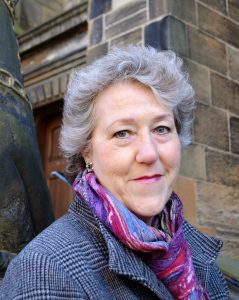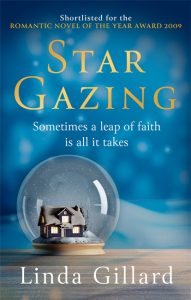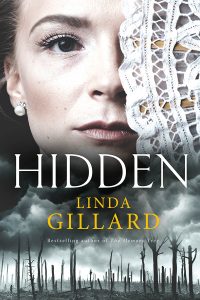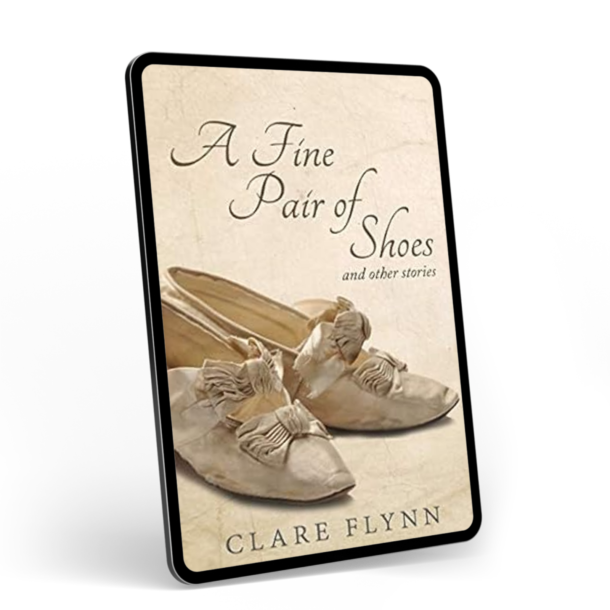I first became aware of Linda Gillard via a Facebook forum and was impressed with her helpful advice and in awe of her engaging posts to her readers. We were both members of ALLi- the Alliance of Independent Authors and I got to meet her face-to-face when we shared a table at a book signing in Foyles, London. I was a scared newbie and she had a huge queue forming in front of her table – her ardent fans had come to meet her in person and get her signature on their books. I remember feeling annoyed when they stood in front of my part of the table and even rested their copies of Linda’s books on top of mine while they waited in line! My annoyance was not however directed at her – instead I was in awe. Now I am happy to count her among my close author friends and still admire her today as much as did then. I was honoured when Linda asked me to contribute a quote for the cover for her latest book, Hidden, and I’m delighted to welcome her onto my blog today for the first time to mark the publication of the book this week.
Welcome, Linda! Can you start by giving us a brief picture of your personal journey as a writer?
 HIDDEN is my ninth novel. The first was published in 2005 when I was 53. I’d had previous careers as an actress, journalist and teacher. I found teaching very stressful and that led to a breakdown. I was eventually diagnosed with mild bipolar affective disorder (aka manic depression). While convalescing, I took up patchwork, made a lot of quilts and read a great deal. I started writing fiction because I couldn’t find the sort of books I wanted to read. At the time bookshops were full of chick lit, but I was 47 and I wanted to read about women closer to my own age.
HIDDEN is my ninth novel. The first was published in 2005 when I was 53. I’d had previous careers as an actress, journalist and teacher. I found teaching very stressful and that led to a breakdown. I was eventually diagnosed with mild bipolar affective disorder (aka manic depression). While convalescing, I took up patchwork, made a lot of quilts and read a great deal. I started writing fiction because I couldn’t find the sort of books I wanted to read. At the time bookshops were full of chick lit, but I was 47 and I wanted to read about women closer to my own age.
So I started writing a love story set on a Hebridean island – North Uist, which I knew quite well from family holidays. I made the heroine a textile artist, my age and bipolar. I wanted to look at the relationship between “madness” and creativity, but I think I was also trying to find an upside to my diagnosis. I was writing just for me, knowing my book would never find a publisher because, in commercial fiction, women over forty only featured as somebody’s mother or somebody’s wife. They were never the main character, let alone the romantic heroine.
My writing group encouraged me to send the book out to agents. They thought its positive message about mental illness should be shared. I thought I’d be wasting my time, but I humoured them. To my utter amazement, an agent took me on, then I found a publisher for the novel I’d called EMOTIONAL GEOLOGY.
I was very lucky. It was the right book at the right time. The innovative publisher, Transita was looking for fiction about older women, but sadly they were ten years too early with their marketing brainwave. The company soon folded. Readers loved the older protagonists, but carping journalists – some of them female – dismissed our books as “HRT-lit” and even “Hag-lit”. Misogyny never goes out of fashion, does it? Sadly no – but how vile and nasty
How do you feed your creative engine? Where do you look, or what do you do, to keep the inspiration flowing?
I watch movies, I read and I try to see as much landscape as possible because it energises and inspires me.
 I lived on the Isle of Skye for six years opposite the Cuillin mountain range and that was a very creative period of my life. I used to walk a lot (I don’t drive), but chemotherapy for breast cancer damaged my nerves so badly, I was left with chronic pain in my feet, so my walking days are over. But I enjoy being driven around and long train or bus journeys. I get ideas for books while I’m gazing out the window, daydreaming.
I lived on the Isle of Skye for six years opposite the Cuillin mountain range and that was a very creative period of my life. I used to walk a lot (I don’t drive), but chemotherapy for breast cancer damaged my nerves so badly, I was left with chronic pain in my feet, so my walking days are over. But I enjoy being driven around and long train or bus journeys. I get ideas for books while I’m gazing out the window, daydreaming.
I keep my eyes and ears open because inspiration is everywhere if you have a creative mind. One day I saw a white transit van parked on a suburban drive. On the side of the van it said BOMB DISPOSAL. My novelist’s mind immediately began to ask questions. What sort of man goes into bomb disposal…? What sort of boy becomes the kind of man who would go into bomb disposal…? What must it be like being married to someone in bomb disposal…? The answer to those questions was a novel and I called it UNTYING THE KNOT.
Mark Twain said “Most writers regard the truth as their most valuable possession, and therefore are most economical in its use.” – How much of your own fiction is based on truth?
 If you mean how much of my fiction is autobiography, the answer is very little. There are autobiographical elements (acting, textiles, teaching) and I’ve tackled some topics (depression, bipolar, disability, cancer, bereavement) because they’ve played a large part in my life.
If you mean how much of my fiction is autobiography, the answer is very little. There are autobiographical elements (acting, textiles, teaching) and I’ve tackled some topics (depression, bipolar, disability, cancer, bereavement) because they’ve played a large part in my life.
Truth is often too unlikely to be recycled as fiction! I recently learned my great uncle was shipwrecked twice while serving in the Royal Navy in WWI. I wouldn’t dare use that in a novel! Ha! I’ve just done exactly that in my work in progress – during war (especially WW2) it was commoner than you’d think! But HOUSE OF SILENCE is based on an intriguing story my mother told me about her own feckless mother. I played the “What if..?” game and used my speculations as the basis of the novel.
I hope all my fiction is emotionally authentic. I do my research, so it should be factually correct too. Readers have encouraged me to think so. When I wrote UNTYING THE KNOT about a soldier whose marriage broke down under the strain of his post-traumatic stress disorder, I got two heart-breaking emails from military ex-wives who said I’d got it exactly right.
Perhaps the biggest compliment is that some readers have assumed I’m blind or that a family member is blind because of my depiction of the congenitally blind heroine in STAR GAZING. No, I made it all up and did a lot of research.
Tell us about your latest book and why we should all buy it? (I’ve read it and it’s a stonking good read!)
 It’s called HIDDEN and it’s a dual-time story. The front story is set in 2018, but most of the book takes place in 1917-18. The stories are linked by their setting: an ancient Tudor house, Myddelton Mote. The story “hook” is a real advert placed in The Times in 1915: “Lady, fiancé killed, will gladly marry officer totally blinded or otherwise incapacitated by the war.” I’ve tried to imagine why a woman might have placed that ad and how such a marriage might have turned out if the man she chose was suffering from shell shock as well as disability and disfigurement.
It’s called HIDDEN and it’s a dual-time story. The front story is set in 2018, but most of the book takes place in 1917-18. The stories are linked by their setting: an ancient Tudor house, Myddelton Mote. The story “hook” is a real advert placed in The Times in 1915: “Lady, fiancé killed, will gladly marry officer totally blinded or otherwise incapacitated by the war.” I’ve tried to imagine why a woman might have placed that ad and how such a marriage might have turned out if the man she chose was suffering from shell shock as well as disability and disfigurement.
I hope readers will find it a page-turning read, but as is often the case with my books, there’s an aspect of the story that I hope will lead to discussion and a better understanding of the issues. Both the 1918 and 2018 heroines are intelligent, independent, professional women and both are victims of domestic abuse. The modern heroine escaped some years earlier and now lives quietly and defensively with her extended family. The 1918 heroine, unaware of her husband’s instability, becomes increasingly isolated until eventually she fears for her life.
What comes first – location, plot, characters?
A combination of character and location. Plot comes later, though there’s usually a key idea or question that the plot will hang on, something unknown that will become known, but when I start writing a novel, I don’t have much idea how it will end. My plots are character-driven but I don’t always know what my characters are going to do. Some authors plan every chapter meticulously, but I think if I knew exactly what was going to happen, I wouldn’t want to write the book. I write the book to find out what happens to my characters.
When readers talk about what they love about books, they rarely mention plot. It’s always the characters and setting. A lot of my reviews mention that the book is “beautifully written”. I think the quality of the writing is more important to many readers than the plot. If plot was really that important, why would we enjoy re-reading our favourite books? Yes!!!
Anthony Burgess once said “Literature is all, or mostly, about sex”. How true is that of your books?
What an extraordinary thing to say! Literature isn’t mostly about sex, it’s about love – all kinds of love. (Maybe because Burgess was a man!)
I write about friendship and families, as well as romantic love. There’s not much sex in my books and nothing graphic, but I think there’s plenty of sexual tension and some very romantic scenes. (STAR GAZING was shortlisted for Romantic Novel of the Year.)
It’s very difficult to write well about sex in English. I don’t know if it’s any easier in other languages, but most of the relevant English vocabulary is ugly and/or medical. The euphemisms sound ludicrous. I tend to write about what happens before and sometimes after love-making. Mostly I leave out what I call “plumbing”. With you on that!
Who or what has been the greatest help to you as a writer?
Self-belief. It has sustained me through years of “rave rejections”, editors badgering me to re-write (which usually meant dumb down), even being dropped by my publisher not long after I was shortlisted for Romantic Novel of the Year. I withdrew two manuscripts and paid back large advances because I didn’t want to completely re-write books I believed in. (One of them was HOUSE OF SILENCE which went on to become an indie bestseller.)
My writing career has been heart-breaking at times. If I hadn’t believed I was the best judge of what my readers would enjoy (which isn’t the same as being the best judge of what will sell), I wouldn’t have been able to keep going.
The other great help has been my agent, to whom HIDDEN is dedicated. I’ve been with her since 2003. She supported my difficult decisions and I went indie with her encouragement.
For some years now there’s been a film of EMOTIONAL GEOLOGY in the works. My dream is that my agent and I get to attend the premiere together in posh frocks! EG was the book that made her take me on. I once asked her why she signed me. The novel wasn’t at all commercial and too romantic to be considered literary fiction. She said she fell in love with the hero, Calum – as has every other reader since. Including me!
I think it’s better to have no agent than the wrong agent. I knew one author who was frightened to ring her agent for fear of being shouted at. I’ve known others who don’t hear from their agents for months. Mine is a friend and she’s always believed in what I want to write and the way I want to write it.
If you could pick one of your own characters to spend some time with, who would it be and why?
Garth the Goth in STAR GAZING. He’s only a minor character, but I adored him. He made me laugh out loud when I was writing him.
Apart from being a Goth, Garth is a researcher and technical assistant employed by Louisa, a middle-aged author of paranormal romance. She lives in Edinburgh with her grumpy blind sister, Marianne, the novel’s unlikely heroine. Garth is a good friend to both women. He’s calm and organised and a good man to have around in a crisis – of which there are a few in STAR GAZING.
I’d ask Garth to do my research, update my website and schedule Facebook posts. And of course he’d bring me coffee while I worked. Bliss Can you send him round to my place afterwards!
What are you working on now – or next?
A rest is long overdue and I need to take stock about my future direction. The obvious next step is to continue to write about WWI because that’s what’s selling, but after three stand-alone books with the war as background or main plot (THE GLASS GUARDIAN, THE MEMORY TREE and HIDDEN), I’d really like to move on to something different. Researching WWI has been fascinating, but there really wasn’t an upside to that period of history. The monumental waste and unimaginable suffering have been depressing to read and write about. I’d already written about shell shock/PTSD in a modern context in UNTYING THE KNOT, so I’d now like to write something lighter.
But… I still have one idea that was triggered by some research. I came across something that isn’t widely known and would make the basis of a moving, very dark novel. I can also see it would be a long story, spanning several generations. I expect my readers would love it, but I feel daunted at the prospect of spending another two years at the Western Front, mentally. So I think I need to rest first, then see if this is the book that wants to be written.
I also have a much lighter Plan B in mind: a love story set in the Isles of Scilly, with mature protagonists, aged 50-60. She’s a retired agony aunt, he’s a retired priest. They find they have a lot in common. I’m hooked already! And I love Scilly!
But mainly my future plans include reading for pleasure, something I rarely get to do. I think writers should read widely and analytically. It’s important to understand why something works, perhaps even more important to know why it doesn’t.
BIOGRAPHY
Linda Gillard lives in North Lanarkshire, Scotland. She’s had careers as an actress, journalist and teacher. She’s the author of nine novels, including STAR GAZING (Piatkus), shortlisted in 2009 for Romantic Novel of the Year and The Robin Jenkins Literary Award for writing that promotes the Scottish landscape. Linda’s fourth novel, HOUSE OF SILENCE became a Kindle bestseller. It was selected by Amazon as one of their Top Ten Best of 2011 in the Indie Author category. In 2019 Amazon’s Lake Union imprint re-published THE TRYSTING TREE as THE MEMORY TREE and it became a #1 Kindle bestseller
Find out more about Linda
Linda’s website www.lindagillard.co.uk
Facebook author page – https://www.facebook.com/LindaGillardAuthor/
Universal link to HIDDEN on Amazon – https://books2read.com/u/mKD0rV


0 Comments